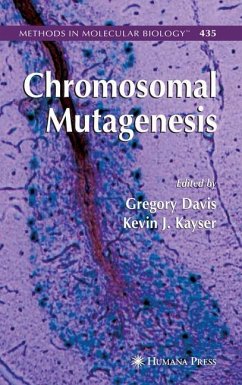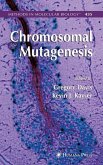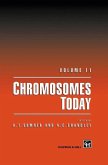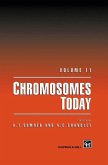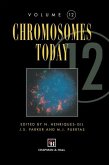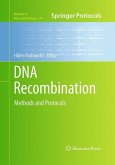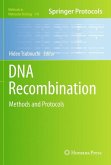Great disparities exist between organisms with regard to the relative ease of chromosomal mutagenesis and manipulation. In Chromosomal Mutagenesis, a team of experts provide a variety of chromosomal manipulation techniques, including insertional gene disruptions, gene knockouts, stimulated homologous recombination techniques and other novel tools, for both prokaryotic and eukaryotic organisms, and attempt to expand the genetic toolbox beyond model organisms. Following the format of the highly successful Methods in Molecular Biology(TM) format, each chapter offers step-by-step laboratory instructions, lists of the necessary equipment and reagents, and tips on troubleshooting and avoiding known pitfalls.
Comprehensive and cutting-edge, Chromosomal Mutagenesis covers state-of-the-art techniques that are staged to expand, if not revolutionize, genetic analysis in the long neglected and relevant cell types.
Comprehensive and cutting-edge, Chromosomal Mutagenesis covers state-of-the-art techniques that are staged to expand, if not revolutionize, genetic analysis in the long neglected and relevant cell types.
From the reviews:
"I looked at Chromosomal Mutagenesis from the perspective of a geneticist ... . it serves as a potentially useful text. ... well written and protocols appear very detailed with good explanation that goes well beyond what one can glean from most published papers. ... On the whole, for anyone either thinking of moving into a field where chromosomal mutagenesis is not so straightforward, or looking for ideas by learning how others have solved related problems, this book could serve as a very useful resource." (Alistair Goldman, Microbiology Today, May, 2008)
"I looked at Chromosomal Mutagenesis from the perspective of a geneticist ... . it serves as a potentially useful text. ... well written and protocols appear very detailed with good explanation that goes well beyond what one can glean from most published papers. ... On the whole, for anyone either thinking of moving into a field where chromosomal mutagenesis is not so straightforward, or looking for ideas by learning how others have solved related problems, this book could serve as a very useful resource." (Alistair Goldman, Microbiology Today, May, 2008)

